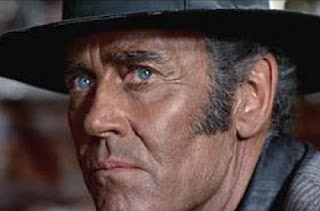Characterization
is a crucial aspect of fiction. We know this because it's drilled into us at
school, in workshops, and in all the how-to books and journals we read. The
protagonist must come across as real and interesting enough to pull the reader
all the way through to the end of the story. A common mistake, however, is to
focus too much attention on the protagonist. When you read a great book or
watch an outstanding film, it's usually the antagonist that lifts the story
above the ordinary.
 |
| A favorite villain: Frank in Once Upon a Time in the West |
Protagonists,
especially those of the heroic breed, are bound by rules and common perceptions
that somewhat inhibit creativity. Antagonists, on the other hand, are wide open
for manipulation. They can be bad to the bone like Hannibal Lector or Chigurh.
They can be nasty or evil, but mend their wayward ways like Ebenezer Scrooge or
Darth Vader. The reader may be misdirected to believe the antagonist is bad and
then everything is flipped around like with Boo Radley and Mr. Darcy.
Antagonists can make a story memorable even when they are not even human, like
Moby Dick or Christine. The one thing these antagonists all have in common is
great character development.
Concentration
on character development shouldn't stop with the protagonist and antagonist. Nobody
willingly hangs around with boring people and nobody wants to read about
characters with cornmeal personalities—not even the bit players. Everybody
inside the covers of your book has to be interesting. Give each of them a
distinct personality. If you have a character like a postman or waitress that
appears only for a couple pages, don't slow down the story by describing their
personality, show it. You need to do it with dress, movement, or dialogue.
Show, don't tell, is more difficult with the brevity of a minor player, but you
only need to spice the character enough to make him or her three dimensional.
A fictional
work has a single writer with a single personality. If you populate your work
with slight variations of yourself, you'll create a homogeneous universe that
will bore people silly. A writer must suppress their own personality when
developing characters so they are all different from each other. It's not
enough that they look and talk different—they must think and act differently.
They must be different people.
The fiction
writer's personality will show up in the total work, but it's best if it's not
directly reflected in the characters, especially the protagonist or antagonist.
Have fun with these two. Make them unique from yourself and every other
character in your work. This is especially true for the antagonist.
A really good bad guy or gal gives a hero a reason to be heroic.
A really good bad guy or gal gives a hero a reason to be heroic.